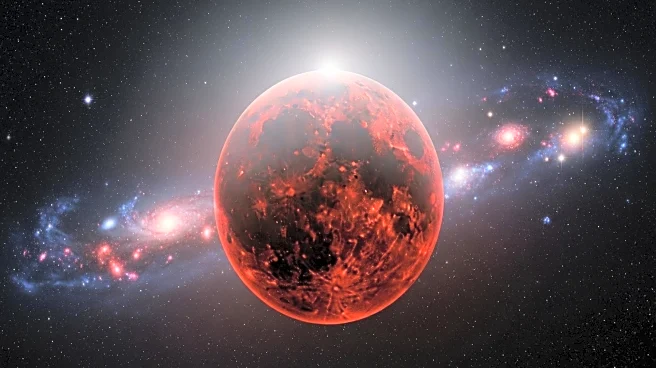What's Happening?
Recent research presented at the Europlanet Science Congress suggests that Mars once had an atmosphere significantly thicker than it is today. This primordial atmosphere, composed mainly of hydrogen, may have been hundreds of times denser, with a pressure about three times that of Earth's current atmosphere. The study, led by Sarah Joiret from Collège de France, indicates that this thick atmosphere could have protected Mars from the heavy bombardment of comets and asteroids that affected other planets in the early solar system. The findings are based on simulations and comparisons of cometary material expected on Mars versus what is actually present. The thick atmosphere is believed to have dissipated relatively quickly, within about a million years, before the formation of liquid water on Mars.
Why It's Important?
Understanding Mars' atmospheric history is crucial for comprehending the planet's potential to support life and its geological evolution. A thicker atmosphere in the past could have implications for the planet's climate and the presence of liquid water, which are key factors in the search for past life on Mars. This research also contributes to our knowledge of planetary formation and atmospheric retention, offering insights into how other planets, including Earth, may have evolved. The study's findings could influence future Mars exploration missions, particularly those focused on uncovering the planet's climatic and atmospheric history.










